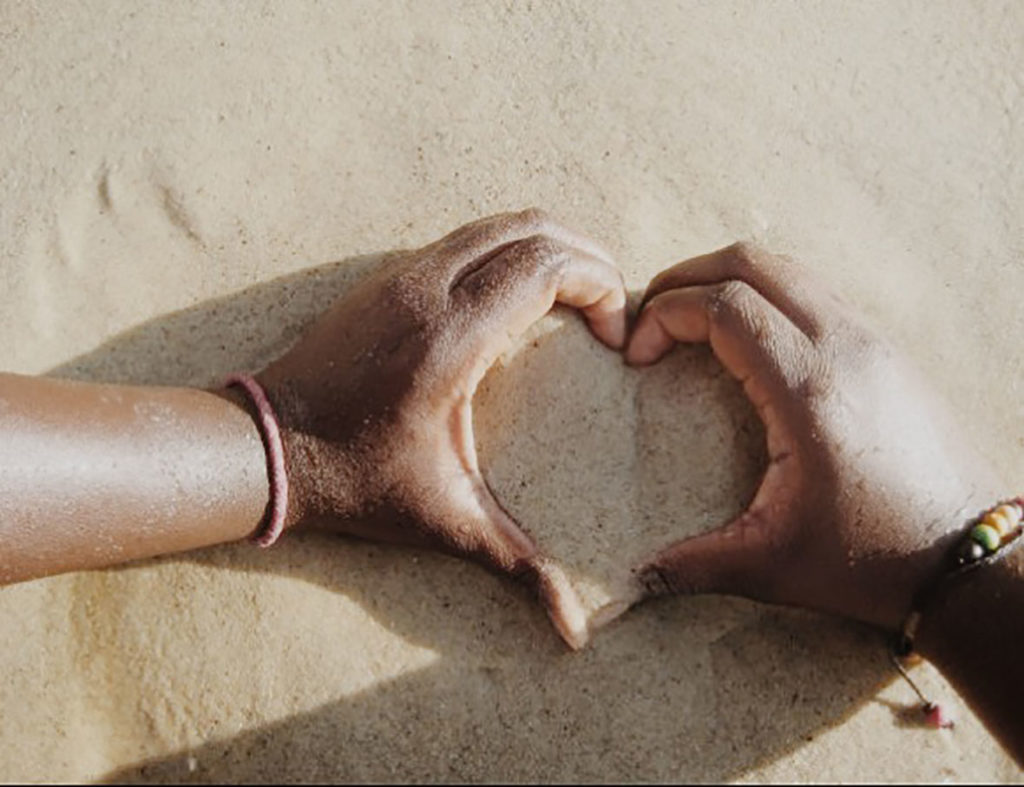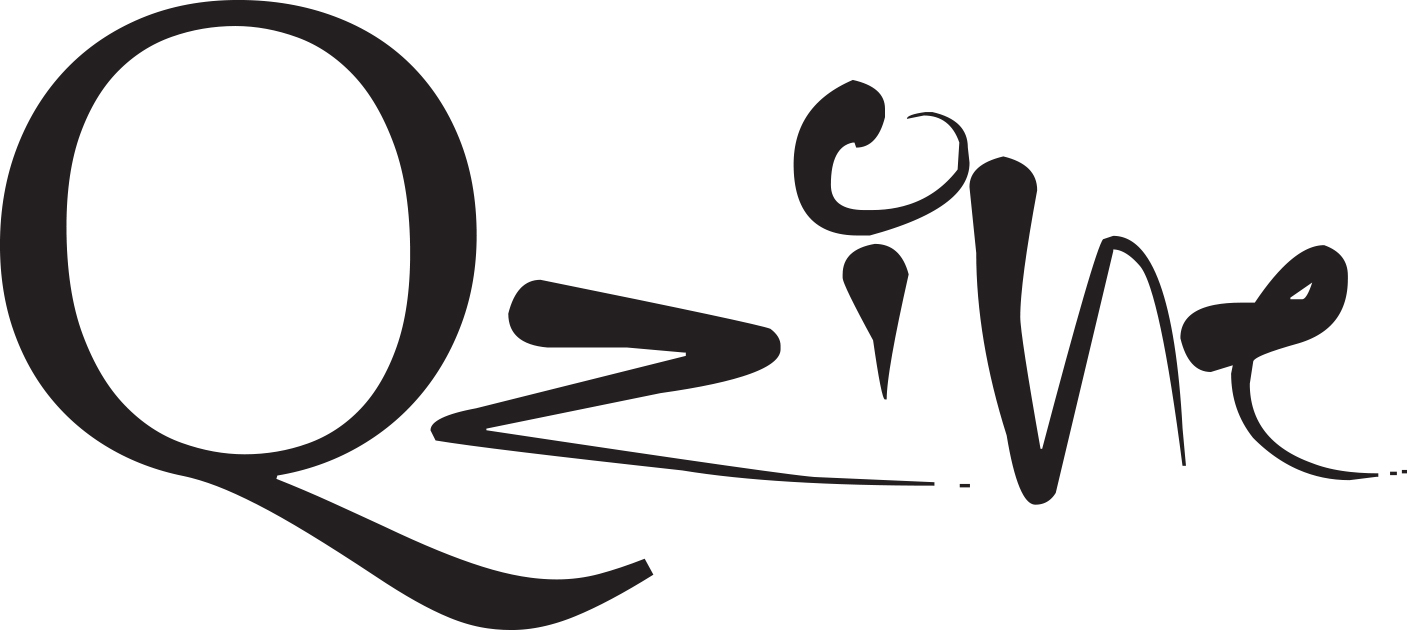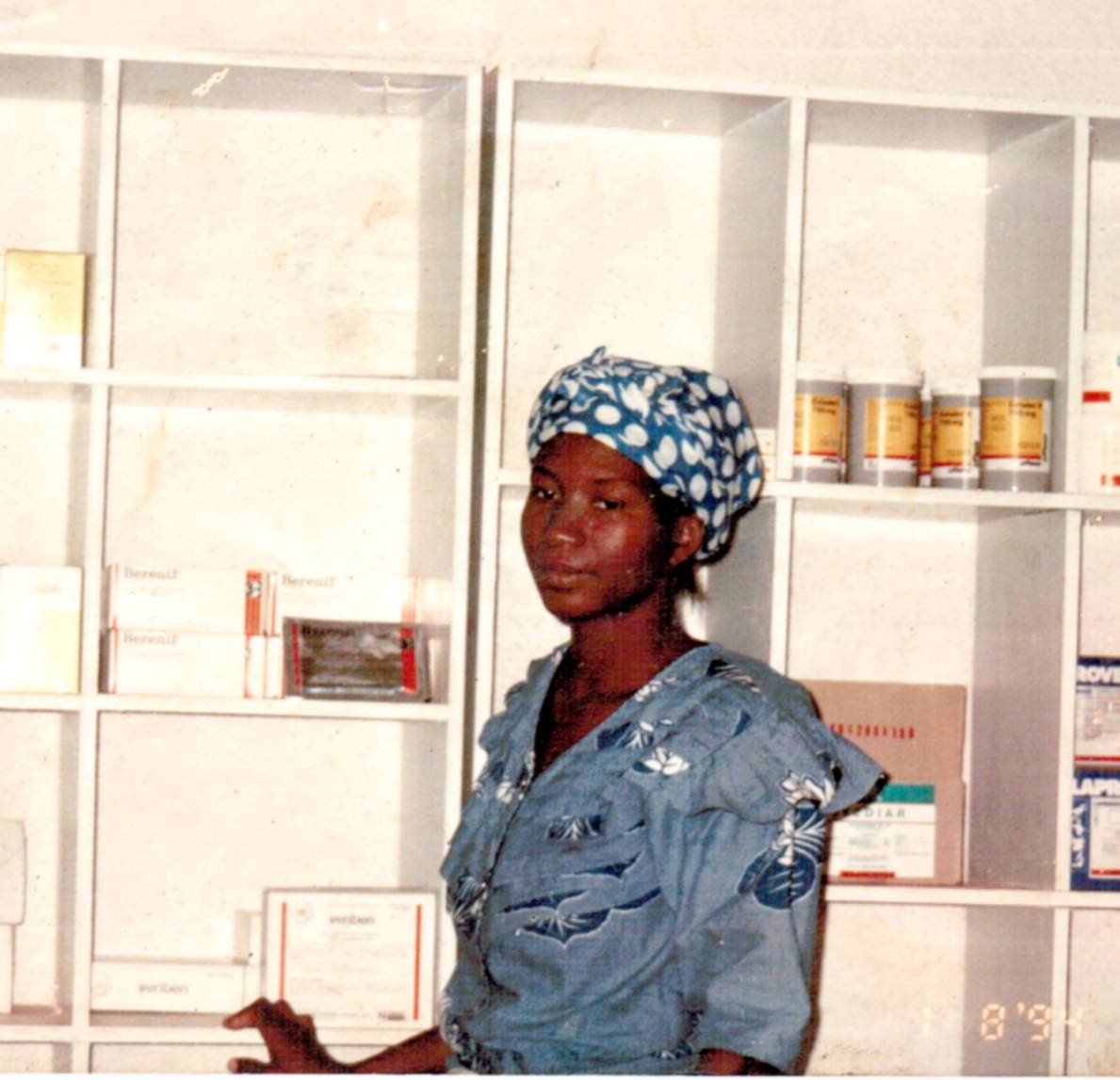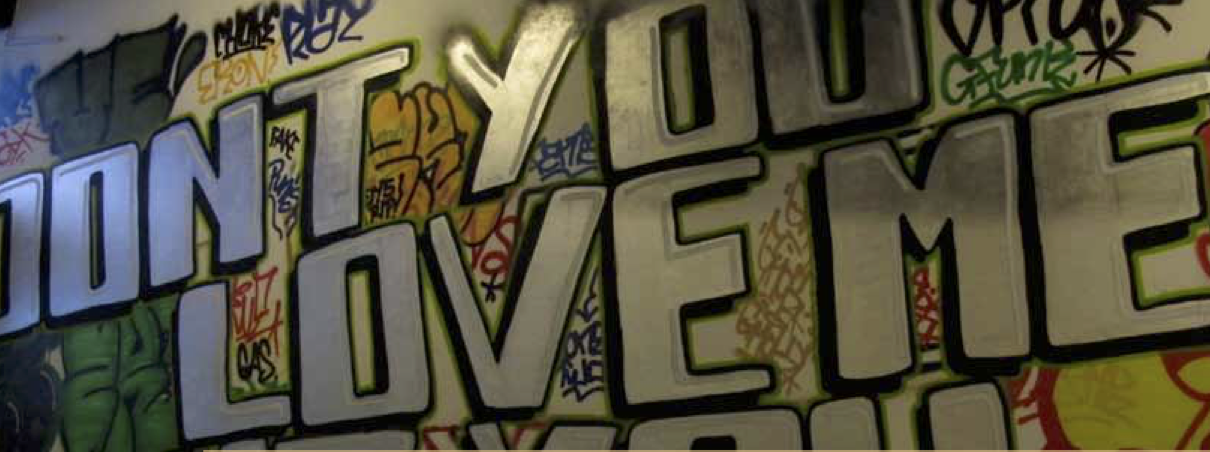African Women Cultivating New Forms of Trust and Resistance in Activist Circles
By Dorothy Attakora-Gyan. Photo by Venezuela
On a crisp fall day, bundled up in an oversized sweater, riding boots and a toque, I set out to go apple picking with my colleagues. The apple orchard was vast and beautiful. It was all sorts of delicious shades of green. As if the succulent bright oranges, reds and yellows of the leaves had been handpicked and carefully, very strategically paired with the lush green rows of apple trees. I was surrounded by beautiful allies, feminists who like myself have bodies marked in nuanced ways, setting us up in opposition to the dominant white male gaze. I was remarkably aware of the ways in which my body was being consumed. The stares, the shy glances, the wide eyes that looked away when they met with mine. I could feel the buzzing curious minds, the questions that were brewing, likely about my hair, my round and dark body. And yet there was a glaring realization that while this was happening, simultaneously, parts of me were being rendered invisible. Whenever I feel put on display, like my body has invited others to build a scaffold of sorts and placed me at the centre, I become aware of all the stories about me that are never highlighted. I wonder if my Ashante and Fanti ancestors shrink in their graves when I am oversimplified as ‘Black’. Is there room for my tribal identities to share space with my blackness? In these moments I am always reminded of my ‘African’ness’. One brush alone cannot paint all the shades that are bursting within. I want to remind people that I am more than the sum of my parts but instead I self- monitor, shrink up, police my movements, and surveillance my body.

I wanted desperately to share with the other women that had accompanied me how I had to work myself up that day to join them. That experience of being a minority, of walking alone even when in a crowd can be unbearable. That although I love nature and the outdoors, reminders of my experiences growing up in small town Ontario continue to make me numb at times, and without the slightest warning. How do I share with these women that having recently watched 12 Years a Slave the rows of apple trees triggered awful slave narratives like books I had grown up reading such as Roots, Amistad, and The Book of Negroes. All at once I found myself engaged in a balancing act, of working through my triggers, suppressing negative experiences of my past and working desperately not to surrender to my fears. This was a level of vulnerability I had not expected and it required unspoken trust in my colleagues to keep from unraveling completely. The experience meant I was reliant on them not to engage in language or acts that would be equally as triggering, but I couldn’t communicate this to them. This is not the first time I have felt this. I have experienced similar inexpressible moments while organizing in collaboration within activist’s circles.
I don’t want to impress upon anyone the notion that not coming undone is something to be ashamed of, commended or that one should work through internal triggers alone. I want to avoid this idea that demands individuals carry the burden, and I most certainly want to avoid stigmatizing or even endorsing mental health constructions that applauds the ‘model citizen’ as one that does not ‘leak’ their problems into the public. In no way do I purport to say that my ‘keeping it together’ on the outside, while navigating all these various emotions on the inside is a best practice. However, I want to provide a personal example of how difficult it is to engage in the work we do as activist, even when working with allies.
As a collective, not only were we eclectic and aesthetically beautiful, together we were queering spaces, more specifically apple orchards! At the same time, I was hyper aware of how I was also racializing the space and doing so alone. I had ample opportunity to share what was unfolding within, yet I could not formulate any words, any language to share with them what I was feeling. I was expressionless, caught in what I call, an inexpressible moment, what Toni Morrison calls ‘those unspeakable things, unspoken’. There is a level of vulnerability that comes with exposing tensions that others cannot identify with. There are the fears that come from being conditioned to believe that you will be read as hyper- sensitive, irrational, angry and in my case, the ungrateful African immigrant (I am never read as Canadian citizen although I am). Audre Lorde (1984) says, “Women of color, grow up within a symphony of anger, at being silenced, at being unchosen, at knowing that when we survive, it is in spite of a world that takes for granted our lack of humanness, and which hates our very existence outside of its service. We as Black women have had to learn to orchestrate those furies so that they do not tear us apart, we have had to learn to move through them, and use them for strength and force and insight within our daily lives. Those of us who did not learn this difficult lesson did not survive, and part of my anger is always libation for my fallen sisters”. As someone studying solidarity building across differences within transnational feminist networks, the apple orchard became for me a microcosm of the very thing, which I am deeply invested in understanding.
That fall day became my entry point into wanting to create dialogue around the silencing and self- surveillance that takes place within feminist circles even when they aren’t voiced. In the end I eventually shared my apple orchard experience with my colleagues. None of them had experienced such discomfort nor had they even known I was working through all of those things during the trip. Yet as women, at some point we had each worked through some tension that day that we had not shared with the others. What I realized was this, everyone has their ‘orchard’ where they sit with discomfort while organizing as activists, and these types of experiences can be very painful.
What does this mean for us as women, as activists coming together to organize? I believe deeply that such experiences point to how we are cultivating new ways of trust, vulnerability and resistance as activists. I wonder how many other African women work through internal ‘stuff’ when meeting in a diverse collective. As an African woman myself, I know all too well what the world has been conditioned to think of me. I know that even within feminist movements many women (not all) grew up with the World Vision narratives of flies swarming our swollen bellies. I am aware that colonization, imperialism have created a world where some consciously or unconsciously still perceive Africans as less than the brilliant beautiful people that we are. I know that my journey in academia as a feminist, a womanist, I have had to be purposeful about claiming my identity as an African- feminist. Some are shocked to discover that there is even such a thing as African feminists, as we African women are usually the subjects Western feminists are trying to ‘save’. Let me stop here and say that I by no means want to homogenize all African women, nor do I think we all experience such inexpressible moments in our day-to-day lives as activists. There are many ways we are pushed to cultivate and re-define new forms of organizing. Furthermore, there is no one fixed conceptualization of an African woman. I acknowledge that my use of the term African women, limits the endless possibilities of all the nuances that come together to shape our various bodies and minds. I know that by taking on such language I make invisible all the parts of us that makes me uncomfortable when I am put on display. I do however, believe that community work, organizing, and activism is particularly difficult, complicated by the very thing we are proud of, our African identity. I can’t deny that my identity as an African feminist doesn’t make me reflect on the tools I need to equip myself with when organizing, or that love is my weapon of choice each time. It takes love, unfiltered, un-afraid, ‘stand in this pain until the end’ type of love to keep me going in this fight against patriarchy, misogyny and so many other vile forms of oppression. What are the uses of my past pains? How do I remain tender during inexpressible moments? These practices are rooted in love. Love for my ancestors, my people, my community, the work, the end goal, and myself. Love keeps me going during the difficult moments I feel stuck and unable to express myself.
The ways in which we swim in and out of oppression, the ways in which we tread murky waters as oppressor. There is nothing neat or tidy about our identities, and thus our interactions with each other cannot be perceived as such. To negotiate tensions, those spoken and unspoken, those things that get left out, that go unsaid or unexpressed are difficult (Takemoto, 2001). I am reminded that although a scar may be healed it nevertheless opens us up to the previous time the wound was opened.
There tends to be a continuous reopening of the wound (Takemoto, 2001). The voices of women who continue to step into the reopening of wounds by engaging in activist organizing should not be negated. The ways in which we as African women take up activism, engage from the ground up, is a wonder, a miracle. By negotiating past hurts, past traumas, we as African women engaged in solidarity building across differences indeed cultivate new ways of organizing to include trust and vulnerability.
In Sisters of the Yam, bell hooks (1993) shares how by moving ourselves from manipulated objects to self- empowered subjects, Black women have by necessity threatened the status- quo. By engaging in radical organizing grounded in love, African feminists disrupt traditional ideas about what it means to engage in activism. We re-imagine the various possibilities of collaboration despite past negative experiences and continue to create new forms of organizing. By engaging in practices that have sought to (and continue to) marginalize African women, some continue to utilize love as a tool of political resistance and survival. The very work we engage in is spiritual, the relationships and dynamics we foster must be grounded in spirituality, in love.
According to bell hooks, love is a combination of six ingredients: care, commitment, knowledge, responsibility, respect and trust. Love has a place in I say yes to all the warm emotions in community work, in activism and solidarity building, particularly across differences. Emotions are often written out of organizing, devalued and negated. Love should not be seen as in opposition and in conflict with logic and reason. Indeed it (and lack thereof) is the reason for many things we engage in. Doing, living and embodying feminism, and engaging in building solidarities requires more than just what meets the eye. How do we engage in conversations of solidarity without speaking about our relationships with each other?
The complex nature of solidarity building requires that we continuously question what others are giving up and working through to enter such spaces. Is this not tenderness in action? If the work we do requires us to think about who grants access to people, what stories they have told, how they have told it, and whose stories are being told or left out, are we not being knowledgeable about how to care for others? The process of healing while simultaneously navigating spaces that reopen our wounds at the very least requires commitment, to trust others and ourselves. Practices of healing should be linked to practices of political resistance (Glass, 2007). bell hooks says that healing is “a healing into wholeness, moving away from the sense of self as splintered, and fractured and broken. Not a healing into perfection, but rather an acceptance that says we are, at our core, essentially whole even in the midst of our flaws and our woundedness”. The sites of injury, where the work we do takes place, the our ‘apple orchards’ of our lives can also be sites of possibility.
As African women we continue to engage in activism even when it hurts us. We heal through the triggers and we are not alone in doing this. I acknowledge all the ways in which other marginalized bodies, those marked by society, are also resisting and actively cultivating new ways of utilizing love as a tool to organize. Indigenous/ Aboriginal/ Inuit women, those with disabilities, both visible and invisible, queer women, gender bending/fluid/non- conforming folk are engaged in creating new narratives within activist circles. I want to acknowledge femme identified woman who get read as straight, Jewish, bi-racial and Métis women who get read as white, and trans* woman who get read as alt and thus not seen as the women that they are. The experience of Muslim women who get read as suspicious and any other marginalized communities rendered to the margins. I believe deeply that any woman that holds within her heart some form of grievance as a result of colonization, imperialism, White- Supremacist, able bodied, Christian, capitalist, hetero- normative, cis- gendered society should be acknowledged for the many ways in which we resist discourses that seek to erase us. I see you; I acknowledge you and I am grateful for your solidarity in the struggle. To all our allies who continue to check their assumptions, their privileges and walk alongside us, thank you. Collectively the very nature of our showing up in activists circles and remaining should be documented, archived and celebrated.
When I consider all the ways in which patriarchy and even feminism has tried to write me out, spoken on my behalf, narrated my stories in ways that tested my vulnerability and shattered my trust, and yet I remain vigilant in being heard, present, seen, known. In all of these ways I am cultivating new forms of trust and vulnerability by continuing to engage. Reconciliation and forgiveness breaks through unspeakable ways of experiencing trauma. Choosing to stand with my sisters, with other women across the world in their struggle says, even in the midst of my internal turmoil, I see you, I acknowledge you and I am here for you. It says that I trust my being in your hands, to be vulnerable in our growing. My vulnerability and trust for you, as much as my intellectual capacity, my knowledge and passion allow me stand in solidarity with you. Care, commitment, knowledge, responsibility, respect and trust, if bell hooks is on to something, that these things make up love, I will continue to pack them with me every time duty calls.



